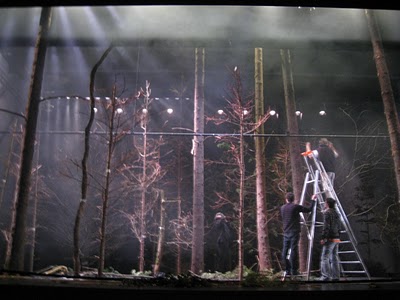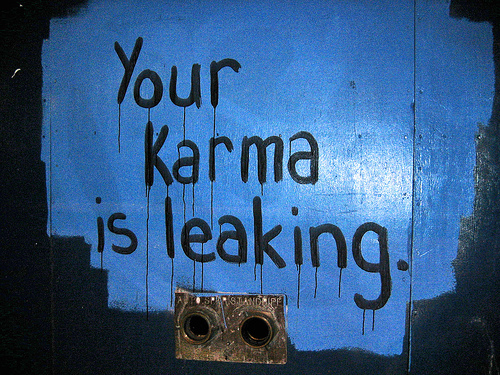most writing prompts suck
So I will try a not-suck one (warning: it might suck). Begin your story/exercise this way:
Socks you wear daily (not yours), revolver, dog you love, dragged out back in the snow falling darkness, dragged behind the dumpster with gun placed to head…Go.
Now, go ahead, say that is lame. Hell, I agree. Way too many images. Crazy off-the-page-subtext. Even seems a bit forced, possibly melodramatic. Even leaning prescriptive.
That’s a prompt?
Maybe the genre of prompt is actually like swimming a true mile (anyone?), as in tougher-than-I-fucking-thought?
Well, fuck. And you. And You try. One sentence, please.
Can I get a non-cliche prompt?
I do not want 1. Which god are you? 2. You drank a milkshake and feel weird. 3. Knock, knock. What was that?
Anything else is cool.
Add your writing prompt (this might appear later in a textbook. And I’m the type of person to pay you .00002 % royalty as opposed to those bastards stealing your idea at 0001%, ha, ha [no, seriously, ha, ha]).
Uh. The point is write ONE sentence as a writing prompt. Let’s see it.
I’m always surprised and impressed by the diversity of ideas at work in independent publishing. Here’s another one: Submishmash.
 Not to get all Wired Magazine on you, but here I’ve done an interview that includes the words, “It’s a services-based MVC architecture. We mostly use open-source technologies (Subsonic, ASP.NET MVC, JQuery).”
Not to get all Wired Magazine on you, but here I’ve done an interview that includes the words, “It’s a services-based MVC architecture. We mostly use open-source technologies (Subsonic, ASP.NET MVC, JQuery).”
See, for the last few years I’ve been managing Publishing Genius submissions through an email address that directed subs into my personal inbox, where I would use various labels to keep them straight. It was easy, so I figured it was a good solution.
But a couple months ago I stumbled across a service for managing subs called “Submishmash.” I liked the curious name, and it was free, so with an ounce of hesitation, I decided to check it out. Since it was in beta, I had to send an email off to the creators. A couple hours later, someone named Michael FitzGerald responded and set me up with an account. He even helped me out by inputting my guidelines from the PG site.
It took me a couple weeks to decide if I wanted to use the service. I had to do my “due diligence” and ask around, find out if they’re reputable. Also, I was worried that writers wouldn’t send their work if they had to deal with signing up for an account with Submishmash.
When I finally adopted the system, I was immediately surprised by how well Submishmash works. Not only did writing continue to flow in, it seems like I started getting more. I don’t know if this is accurate because my old, email-based system doesn’t give me any reports. Submishmash, however, has great analytics. It made receiving subs fun again.
Submission management systems aren’t new. Famously, One Story developed one and sold it to the CLMP. Theirs is a paid system, though, and I can’t afford that, so I have no idea how it works. But I also didn’t know how overwhelmed I was with my email solution, and how disorganized. What I do know, however, is that Submishmash has made my job exponentially easier. It’s intuitive and powerful. It’s packed with features for reading on the screen, automated responding, filtering and reporting. And best of all, at least for me – the developers are great people who know their business, and who know publishing.
I’ve asked Michael FitzGerald, who aside from being a programmer also wrote the novel Radiant Days, if I could interview him about the project. READ MORE >
This Is How You Will Disappear stills
Today at DC’s, more totally gorgeous production shots from Dennis Cooper’s production with Gisele, Stephen O’Malley, and many others, This Is How You Will Disappear:





Servicey: Should You Get an MFA? Find out for $1100 + Room/Board in NYC
I have no problem with capitalism or unique ways of creating profit and independent magazines have to really think outside the box to generate money. To that end, today I got an e-mail from One Story about their intimate writer’s workshop that will answer the age-old question: Should I get an MFA?
For the tidy sum of $1100 PLUS a $25 application fee One Story says:
The week will include morning workshops, afternoon craft lectures, and evening panels with writers, editors, agents, and MFA directors. All events are designed to give students the practical advice they need to either apply for an MFA or launch their career outside of academia.
We are crafting a unique experience, both practical and creative, for writers who hope for a career in fiction writing. Students will leave with:
- A workshopped portfolio they can use as their writing sample
- Advice from MFA directors about what they look for in an applicant
- A full understanding of the range of MFA and non-MFA options
- Insight about what an MFA can offer a writer
- A breakdown of the financial implications of an MFA
- A community of writers at the same stage of their career
- Access to One Story editors and authors
- A look at the wider publishing world from literary agents, editors, and writers
I am fascinated by these sorts of workshops and people who could afford to spend this kind of money. I will do all these things for you for $110! One-tenth of the price! BARGAIN! For free you can consult Dr. Google about what an MFA might offer you. Or you could ask a writer. Options, they’re fantastic.
Publication is Not Necessarily a Privilege but it Certainly Is Not a Right

There is a lot of advice out in the world about what it takes to be a good writer but two rarely discussed qualities are maturity and patience.
In my twenties, I was convinced of my genius as a writer and when my work wasn’t being accepted by literary magazines, I was quite certain editors didn’t understand my writing or my project and I subsequently assured myself that the literary world was full of pretension, and held no promise for me. I was severely misunderstood.
I do not know how much of that attitude I have abandoned but I would like to think I’ve matured.
Salesmen

I really don’t understand the hard sell approach used by certain authors/vendors in aggressively trying to push their goods. Though you may be able to cajole me into forking over $$ for your book at the bookfair (I am a pushover, often), you sweating and awkwarding me into doing so will only guarantee that though I have your book inside my house now, I will never read it, and will likely think of you only often thereafter in a gross light, thus netting you perhaps one book sold but a whole trajectory made mushy. Come on. Relax. Be cool. Things go around. Invest in yourself. Not all sales happen at the point of purchase, and better things are friends.
On a side note, in one instance this past weekend at the Denver book fair when I was shown a book and didn’t buy it, the presenter told his friend passive-aggressively toward me, “Oh, check out HTMLGIANT… it’s a great site, if you like sex and hyperbole and death.” I think he thought it was an insult. I got it tattooed on my thigh.
This one never gets old:
Seek to seek.
Okla Elliot: What should young writers today study or do in order to improve their craft?
Christopher Higgs: Become intellectually polyamorous, cultivate an insatiable curiosity for knowledge and experience in as many different guises as you possibly can, question everything, always challenge, learn that failure and rejection are positive things, subscribe to at least three non-literary magazines in three completely different fields (for me, right now, it’s National Geographic, Juxtapose, and Wine Enthusiast – last year it was Seed, Esquire, and Art in America), forget politics: it has nothing to do with you and any time or energy you invest in it is wasted time and energy you could be using productively to learn and experience and create, do not choose sides, do not agree or disagree, embrace contradiction, watch cinema from as many different countries and time periods as you possibly can, seek out unclassifiable music, spend time in unfamiliar locations, expose yourself to new activities, go to the opera, go to the ballet, go to the planetarium, travel a lot, observe as much as you can, pay attention to the way people talk and the way people listen, eat strange food, watch at least one sporting event but instead of thinking about it as entertainment think about it as narrative, ABR = Always Be Researching, carry a notebook and pen at all times, remember it is more important to ask questions than give or receive answers, seek to open up and never close down, seek to seek, do not seek to find, fall in love with language, think obsessively about language, about words, about sentences, about paragraphs, about the sound of words, the weight of words, the shape of words, the look of words, the feel of words, the placement of words, and most importantly be your biggest advocate, think of yourself as a genius, think of yourself as an artist, think of yourself as a creator, do not despair, do not listen to criticism, do not believe naysayers, they are wrong, you are right, they are death and you are life, they destroy and you create, the world needs what you have to say.
The Cost of Things

At The Coachella Review, Steve Almond shares a lively exchange with an editor who received a $50,000 advance asking him to write for free, for good will—an entry for the book The Enlightened Bracketologist: The Final Four of Everything.
When Almond asks the editor in question, Mark Reiter, about the pay, the editor states:
You’re right, it is fun. Alas, there’s no money in it for contributors. Our fact-checker Matt is the only one making a net profit on this project. The best we can do is a plug for your book and promising you the (admittedly disputable) pleasure you get in putting your life’s passion to good use for a new cohort of readers.
Almond then asks the very reasonable question about who exactly is being paid for the project and Reiter states:
Yes, Richard Sandomir and I are sharing an advance of $50,000. That’s $25,000 each. Take away the 15% agency commission, it’s down to $21,250 each. I’m paying my assistant Emily Sklar an extra $5000 out of my pocket to handle the logistics (tracking down folks like you, for example). We’re delivering to Bloomsbury 100 brackets. We can’t pay some people and not others, but if we did offer payment-less than $500 would be pointless-to everyone, the math says we’d be in the red. Royalties in excess of the advance (should they materialize) go to Richard and me. That’s the economics of this project.
Almond counters with a reasonable suggestion for how everyone can walk away happy:
The only compromise I can live with is to ask that you pay me a small fee for “first-serial rights” to my bracket, which you’re then free to publish elsewhere. Or agree to pay me a tiny percentage of the royalties. This has no bearing on your other contributors. It would be an agreement written into my contract.
Publishing Genius is not going to accept submissions for books after the day after tomorrow. You can send them on 4/1, but not on 4/2. I’m going to select a book to be published in 2011 from everything in the pile by 11:59 on Thursday. Book submissions will be open again later.
(However, I recently lost a bet to Michael Kimball, so he gets to pick any book I have to publish — you can always hit him up with bribes.)

